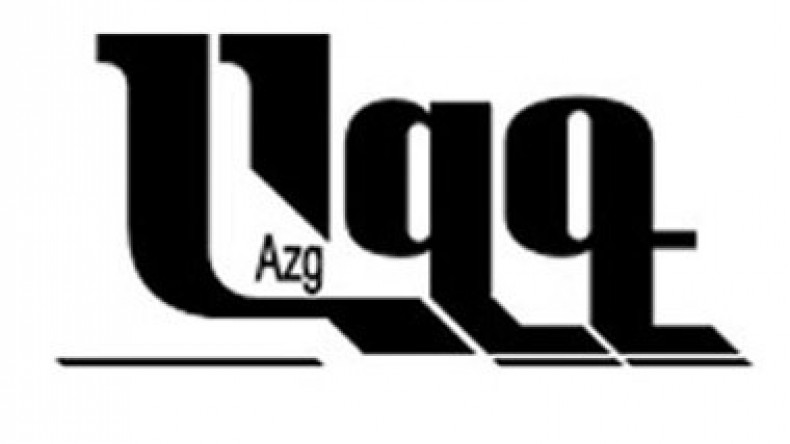
Suren Movsisyan: “I believe, Leicester University is hereby engaged in politically sensitive research project”.
Early February Leicester University Law School of United Kingdom announced “Khojaly” research project to invite two research fellows from Armenia and Russia to undertake investigation over the events of February 1992.
Azg Daily newspaper has conducted an interview with political scientist Suren Movsisyan, who says he applied for the research project, but was refused.
Mr. Movsisyan, first of all thanks for reaching out. My first question - how did you learn about the Khojaly Project at Leicester Law School?
As an Alumnus of the University of Leicester, I usually look through the University web page to find out recent job opportunities at this highly regarded institution. I was really surprised while came across the announcement on Khojaly research project, and was very much interested in getting involved into the Project based on my previous research and working experience. And, assembling all the documents, I applied for it before the deadline.
That’s what I would ask you now. Did you apply? And do you know if any Armenian scholar applied as well. Is anyone chosen and involved in the project at the end?
Yes, I did apply, but, unfortunately, have no idea if anyone else did. However, I would wish anyone else best luck in his or her endeavor, because I myself received a refusal letter as of March 9. You know, even without any interview, which is really weird, because I have an extensive research background and, as I said, I am a Leicester Alumnus. With this said, I believe, Leicester University is hereby engaged in politically sensitive research project.
What’s the description of the project? How can you assess the scientific value?
As I said I read the project announcement at Leicester webpage, and later on found the project description and the call for applications at jobs.ac.uk. While reading the announcement for the position of Research Assistant within Khojaly project, I noticed numerous gaps that, to my mind, contradict the very nature and the spirit of academic research. But even considering this, I applied for it with the aim of providing my humble contribution and added value to the research project with my knowledge and experience.
Let me stop for a moment on the gaps. First of all, the “purpose” of the project was missing. I can’t imagine any research without its purpose outlined. It seems to me that the focus of the research, which was slightly provided, aimed at distracting the attention of the reader and the applicant from missed purpose of the project. Moreover, the research announcement, by the way, also lacked a call for a researcher in Azerbaijan, which is crucial in terms of researching on the allegations that Azeri top level leaders had their part of what happened in February 1992. To support this, by the way again, lets not forget what happened a week later in Baku, I mean the power change in presidential palace early March 1992. I do not want to go deeply into history that preceded and followed those uncertain events in Khojaly at this point, but I am sure, biased, imperfect and highly politicized research findings are unacceptable for any respected academic institution.
It’s certain that any type of research should be objective and academically viable so that findings are without bias and served to the objective reasons. Objectivity is when research is neutral, when personal bias has been removed, meaning two independent researchers should be able to conduct the same research and get the same outcome. Here I am very much doubtful about the outcome of this specific project, while the international community needs to know what really happened in Khojaly and why.
So it seems to be a rather politically sensitive, doesn’t it? If so, isn’t it biased for Leicester University Law School to undertake this kind of research?
Sure, it is politically sensitive issue because it covers politically difficult period in Azerbaijan, which I briefly mentioned above; it touches upon Nagorno Karabakh conflict itself which is still ongoing and regional security issues in the Caucasus. I suspect, that this project is initiated specifically in Law School to use the results as an additional tool for information propaganda, anti-Armenian hate speech and war rhetoric build-up. Unfortunately, the University of Leicester, being a pure academic institution with its well known research centers, is going to be a platform for falsification which will negatively affect the University prestige as one of the top universities in the Great Britain. Indeed I regret that the University of Leicester which I consider to be my Alma Mater, and now proudly pointing myself to be a Leicester graduate, is involved in suspicious research with obvious and purely non-academic objectives.
Anything more you want to add?
I wish any Armenian researcher were involved into this project to make it less biased and vulnerable in methodology, approach, analysis and data gathering. Regretfully, my application was refused so that I have no choice than to wait till the results of this false and non-academic research will be published. Moreover, I am going to talk about this biased research at all possible levels using all relevant chances. In follow-up email communication I told Dr. Paul Behrens – the project leader, as announced on Law School webpage, about my intention of heavily criticizing this biased approach, and I do hope it will get relevant response from international academic community as well.
Newsfeed
Videos






























